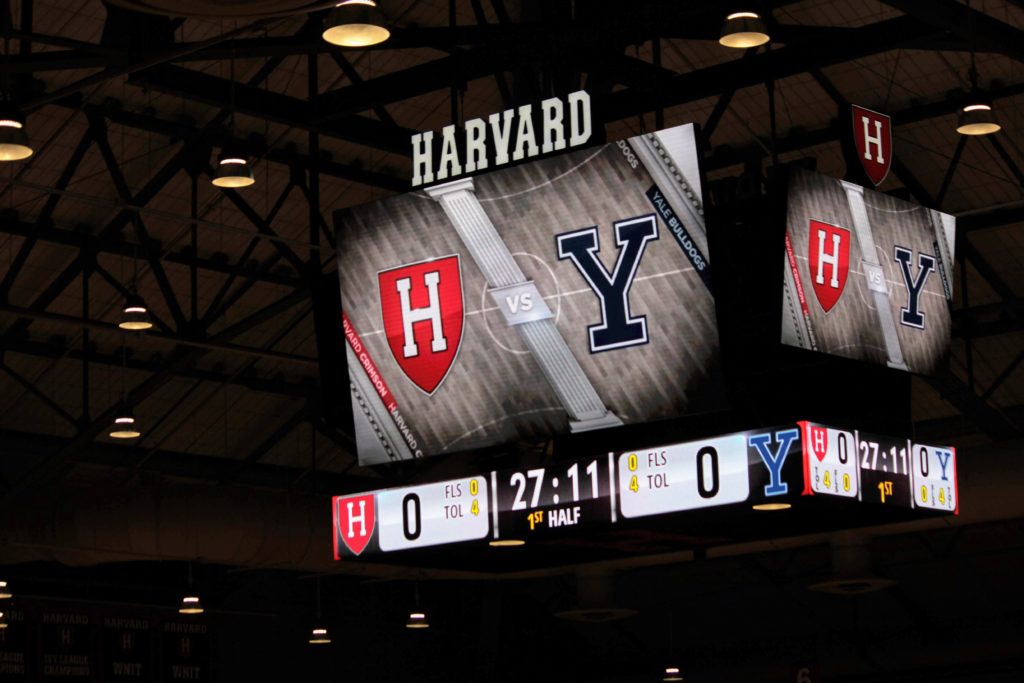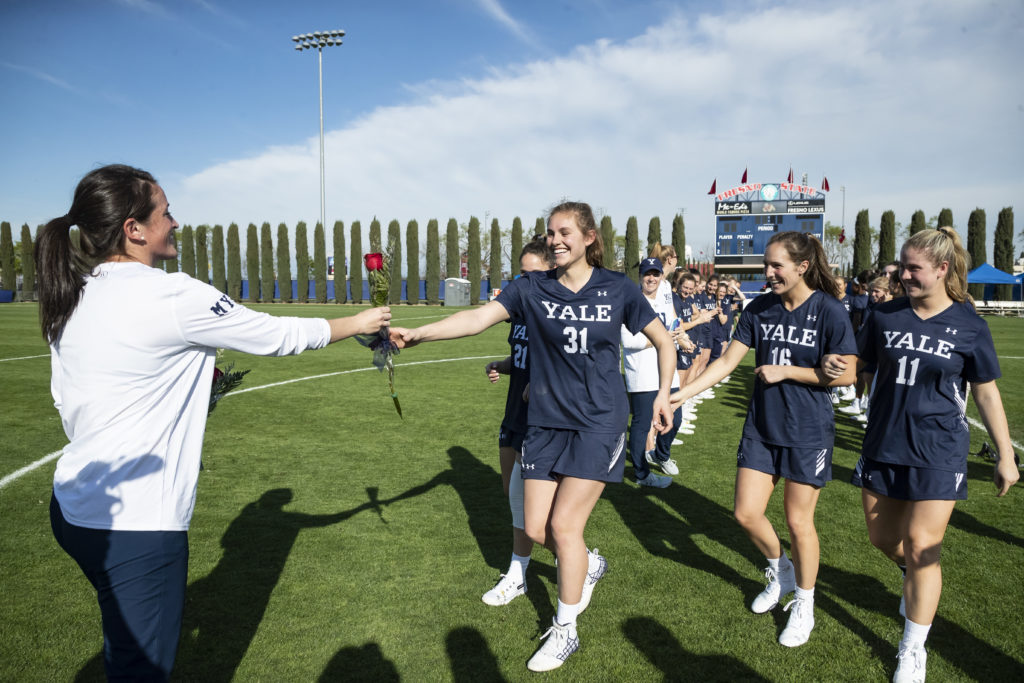Acting first, Ivy League cancels all spring sports
The decision to cancel all spring sports came a day after the Ivy League announced the cancellation of Ivy Madness, the conference’s postseason basketball tournament.

Courtesy of Sam Rubin '95/Yale Athletics
Amid the World Health Organization’s designation of the coronavirus (COVID-19) outbreak as a global pandemic, the Ivy League announced its decision to cancel all spring athletic events on Wednesday, March 11. The decision, one which other universities and leagues would soon follow, made the Ivy League the first conference to cancel its spring seasons.
In an official press release, the League stated that university presidents unanimously voted to suspend all spring athletic competitions for the remainder of the year. The announcement followed decisions to move classes online from several Ivy League institutions, including Yale, Columbia University, Harvard University and the University of Pennsylvania.
The decision to cancel all spring sports came just a day after the Ivy League announced the cancellation of Ivy Madness, the conference’s postseason basketball tournament. The Ancient Eight was the first conference in the country to cancel its league tournament, triggering a domino effect within the rest of the collegiate sports landscape. Within 48 hours, the ball had stopped bouncing for college basketball players across the country.
“Obviously I understand that the Presidents and Athletic Directors want to keep everyone safe,” Andrew Jones ’23 of the Yale lightweight crew team said at the time. “With that being said, it’s hard to describe the amount of hurt that my team and I feel right now. I’m still amazed and in awe at how quickly this happened, and even though this was the outcome I was expecting, I feel like I’ve been punched in the gut. There are just so many emotions right now and none of us have any idea what to do in such an unprecedented situation.”
In early March, Yale had several winter sports teams still competing in their respective postseasons. Following Harvard’s decision to forfeit its men’s hockey ECAC tournament matchup against Rensselaer Polytechnic Institute — which was already planned to take place in an empty Houston Field House without any fans — Yale followed in the Crimson’s footsteps. Shortly thereafter, the ECAC cancelled the remainder of the tournament in its entirety, and President of the NCAA Mark Emmert would go on to announce the cancellation of all remaining winter and spring championships on Thursday, March 12. The decision followed an earlier announcement that all upcoming championship events would be held “with only essential staff and limited family attendance.” Yale men’s basketball was set to participate in the NCAA Tournament after receiving an automatic bid due to the cancellation of the Ivy League’s own postseason tournament.

The elimination of spring athletics especially impacted seniors, as the Ancient Eight remains the only Division I league that does not permit medical redshirts and restricts athletes’ eligibility to their first four years of actual undergraduate enrollment. After the NCAA Division I council voted to approve an extra season of eligibility for spring athletes, the Ivy League later announced a commitment to its existing policies, preventing spring athletes from competing as graduate students in the Ancient Eight. It would not be approving extended eligibility for fifth-year athletes, a decision which came as a shock to much of the collegiate sports world.
“After a number of discussions surrounding the current circumstances, the Ivy League has decided the League’s existing eligibility policies will remain in place, including its longstanding practice that athletic opportunities are for undergraduates,” Ivy League Associate Executive Director Matt Panto said.
The league’s decision to maintain its policies raised more questions for seniors pondering their futures and hopeful for potential exceptions to eligibility guidelines. At first, withdrawal from some Ivy League institutions appeared viable, as student-athletes would still be competing within their first four years of enrollment upon reinstatement.
But Yale, alongside many of its Ancient Eight peers, later announced that the University would follow its existing regulations around personal withdrawals, which require students to disenroll for two full semesters. Although some pursued opportunities to play as graduate transfers outside the Ivy League, spring senior athletes faced the stark reality of never again suiting up for the Blue and White.

“I haven’t really come to terms with it yet,” heavyweight crew captain Thomas Digby ’20 said after his season had been canceled but before the Ivy League announced the decision to maintain existing eligibility rules. “Because it feels like I’ve just gone home, and we’re gonna come back, but I actually realistically could not be going back, which is a crazy thought.”
Around the same time as the Ivy League’s cancellation of spring sports, the NBA, NHL, MLS, and MLB all followed in suspending operations.
Akshar Agarwal | akshar.agarwal@yale.edu
Drew Beckmen | drew.beckmen@yale.edu






